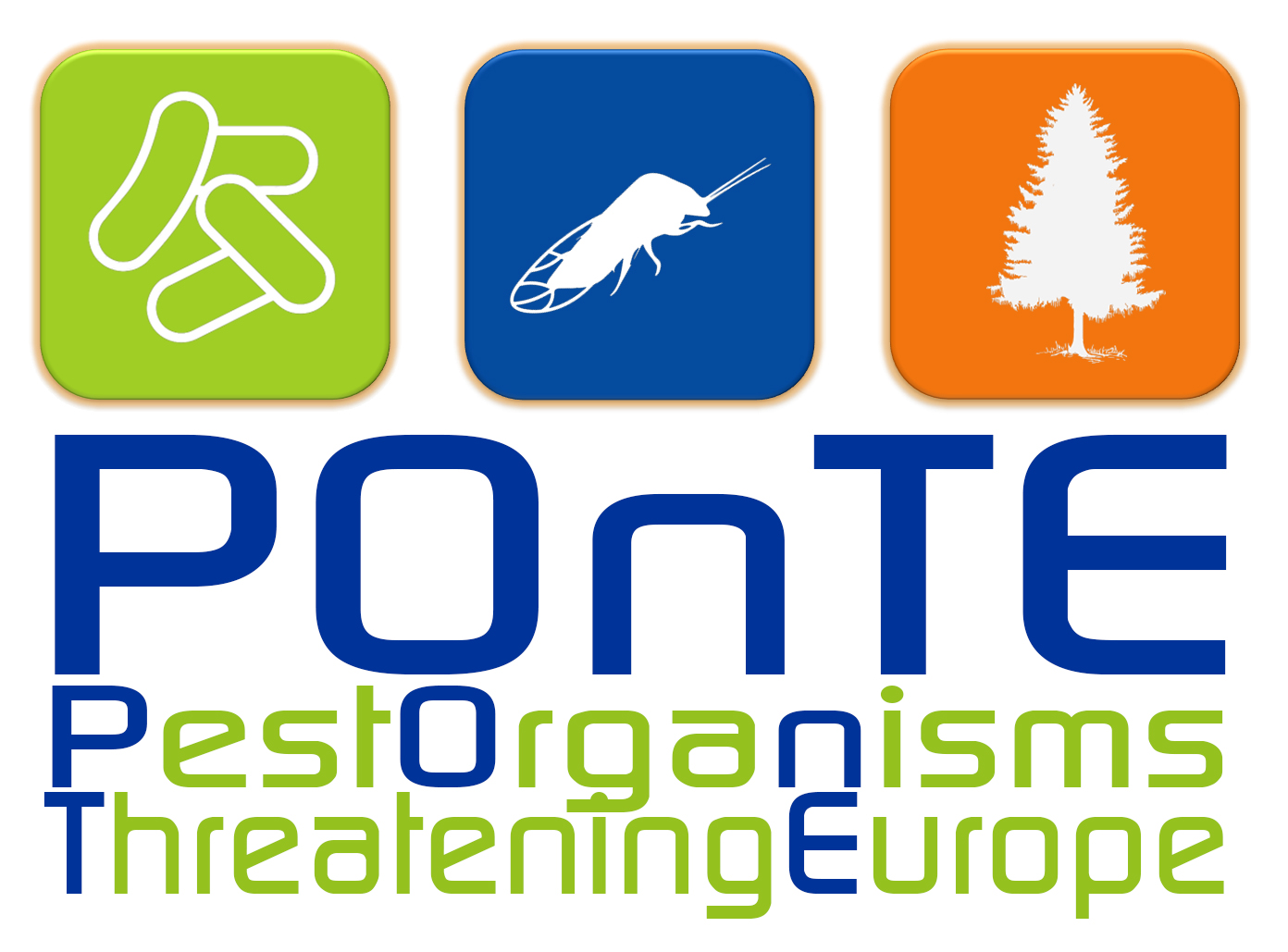Project Summary
This proposal, SFS-03a-2014-aligned, focuses to minimize the risk of introduction/impact of emerging pests threatening EU agriculture and forestry. The targets are: 1) Xylella fastidiosa and its vectors in olive, grapevine, citrus, stone fruit, ornamentals and landscape trees of high socio-economic importance; 2) ‘Candidatus Liberibacter solanacearum’ and its vectors affecting a number of strategic crops such as potato, tomato and carrot; and 3) Hymenoscyphus fraxineus (anomorph. Chalara fraxinea) and Phytophthora spp. seriously affecting broadleaf and conifer species in forest ecosystems. Targeted pests, their vectors and the host response will be explored using innovative approaches (NGS, transcriptomic). Diseases surveillance and epidemiology given by current methods will integrate improved survey protocols and remote sensing. Innovative IPM will include studies of microbiome to develop sustainable solutions in line with the EU plant health legislation. New knowledge gained with POnTE will result in an outcome-based pest prevention and management work plan to: a) implement area-wide pest risk assessments; b) prevent the entry and develop surveillance and early detection tools (diagnostic kits, lab-on-chip, new biomarkers); c) mitigate the spread and reduce the socio-economic impact; d) IPM based on disease resistance, disease-free seeds, cultural practices and physical environmentally-friendly treatments; e) support knowledge-based decision-making policies at EU level. The proposal fosters and promotes a multi-actor approach and transnational research collaborations among 25 Partners at the forefront of research in plant protection, agro-engineering and economics. It involves key industries/SMEs that develop diagnostic kits and services, agrochemical and seed companies, stakeholder groups. End-users will participate in the development of the project and immediately implement the practical solutions derived from the outcomes to solve these serious emerging diseases.
List of Beneficiaries
- CNR, ITALIAN NATIONAL RESEARCH COUNCIL, Italy
- UNIBA, UNIVERSITY OF BARI ALDO MORO, Italy
- INRA, FRENCH NATIONAL INSTITUTE FOR AGRICULTURAL RESEARCH, France
- ANSES, FRENCH AGENCY FOR FOOD, ENVIRONMENTAL AND OCCUPATIONAL HEALTH AND SAFETY, France
- IVIA, VALENCIAN INSTITUTE FOR AGRICULTURAL RESEARCH, Spain
- CSIC, SPANISH NATIONAL RESEARCH COUNCIL, Spain
- SG SASA, SCOTTISH GOVERNMENT–SCIENCE AND ADVICE FOR SCOTTISH AGRICULTURE, United Kingdom
- FORESTRY COMMISSION RESEARCH AGENCY, United Kingdom
- BFW, FEDERAL RESEARCH AND TRAINING CENTRE FOR FORESTS, NATURAL HAZARDS AND LANDSCAPE, Austria
- LUKE, NATURAL RESOURCES INSTITUTE FINLAND, Finland
- WU, WAGENINGEN UNIVERSITY, The Netherlands
- NIBIO, NORWEGIAN INSTITUTE OF BIOECONOMY RESEARCH, Norway
- UCR, UNIVERSITY OF COSTA RICA, Costa Rica
- ARO, AGRICULTURAL RESEARCH ORGANIZATION OF ISRAEL, THE VOLCANI, Israel
- UB, UNIVERSITY OF BELGRADE, Serbia
- CERTIS EUROPE B.V., The Netherlands
- AUREA IMAGING BVBA, Belgium
- VILMORIN S.A., France
- LOEWE BIOCHEMICA GMBH, Germany
- PHYTOPHTHORA RESEARCH AND CONSULTANCY, Germany
- ACLI RACALE–AGRICULTURAL COOPERATIVE SOCIETY, Italy
- AGRITEST SRL, Italy
- CITOLIVA FOUNDATION, INNOVATION AND TECHNOLOGY CENTER FOR OLIVE FARMING AND OLIVE OIL, Spain
- AGRICULTURAL VILLENA COOPERATIVE, Spain
- A L TOZER LTD, United Kingdom
